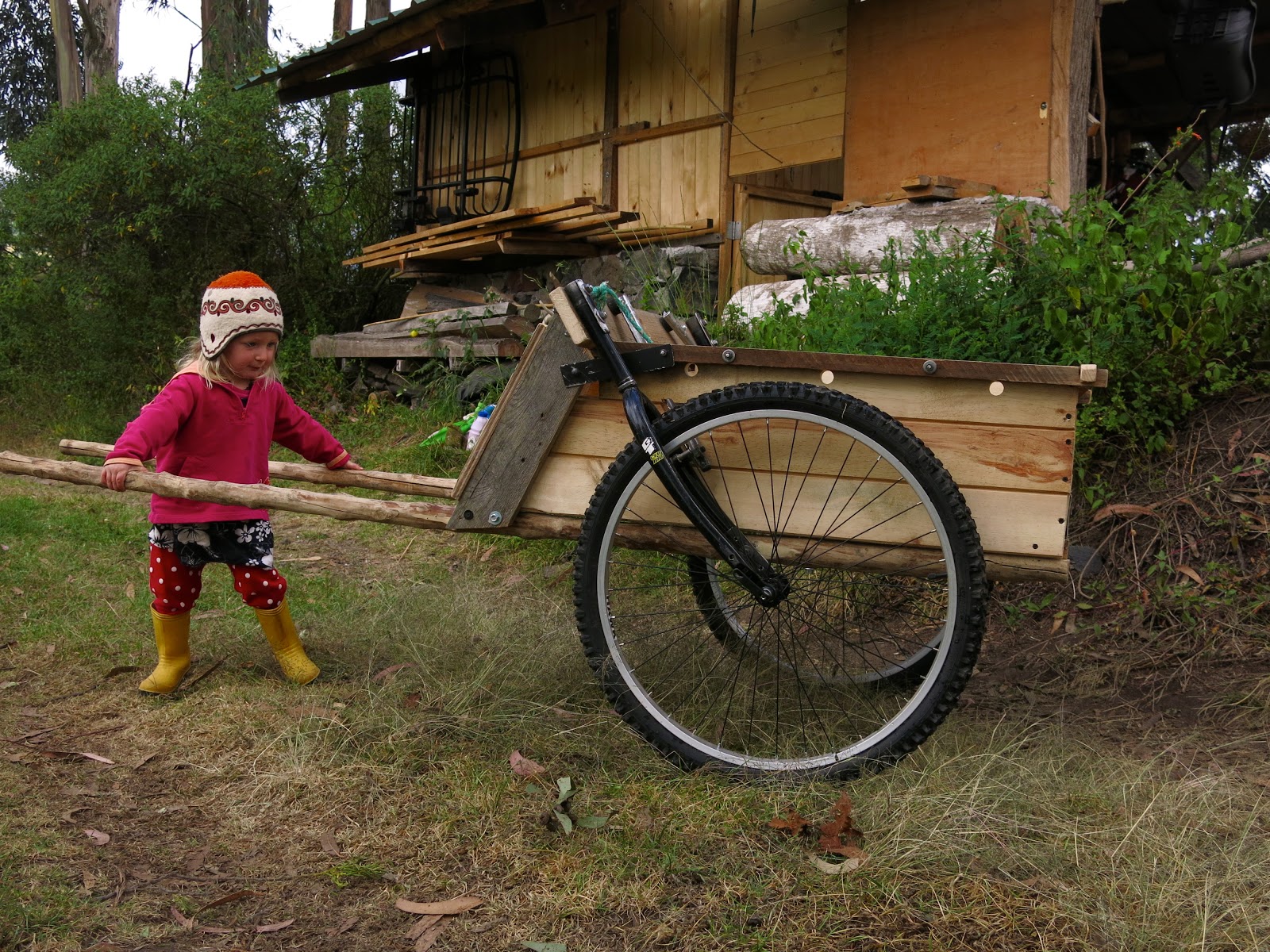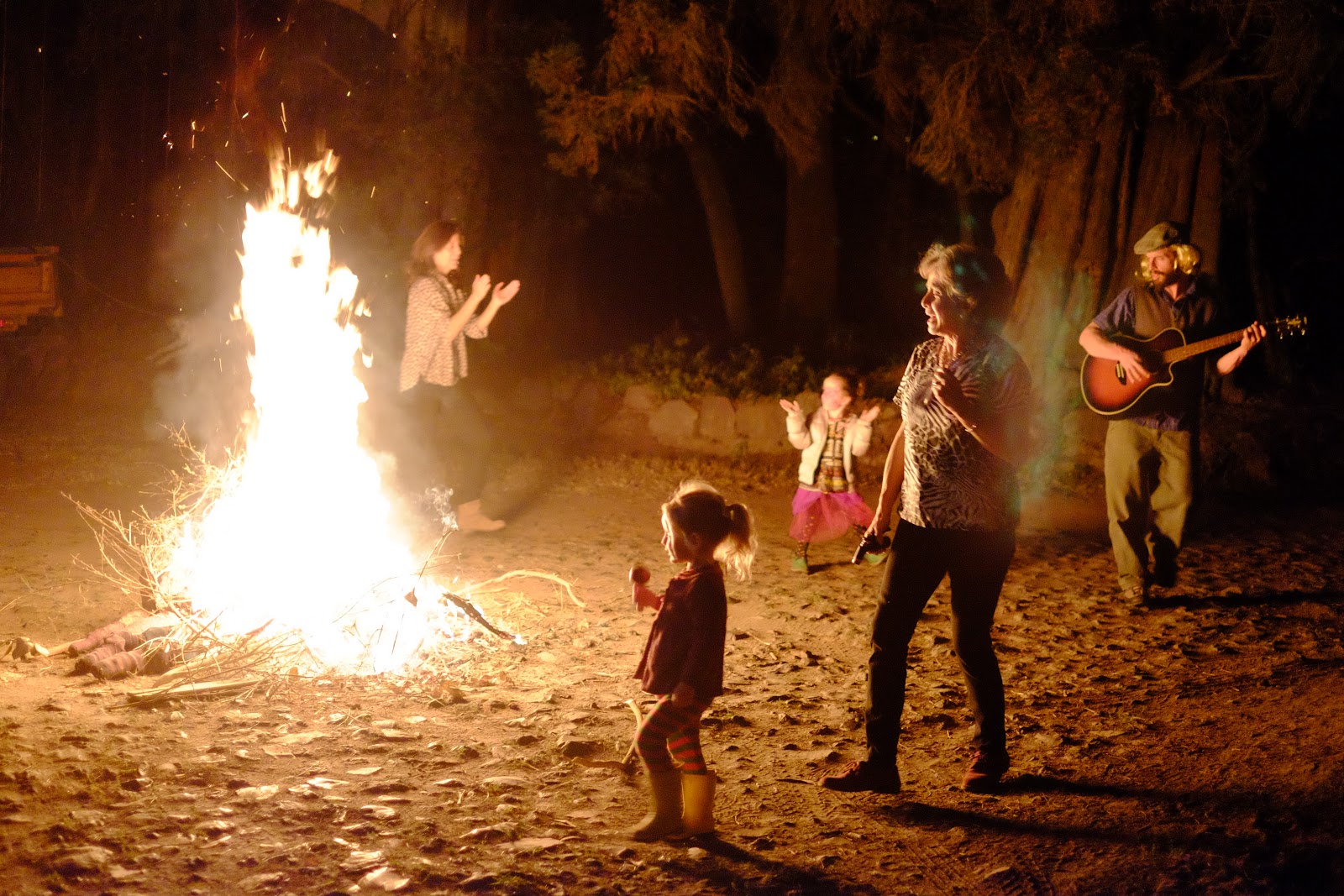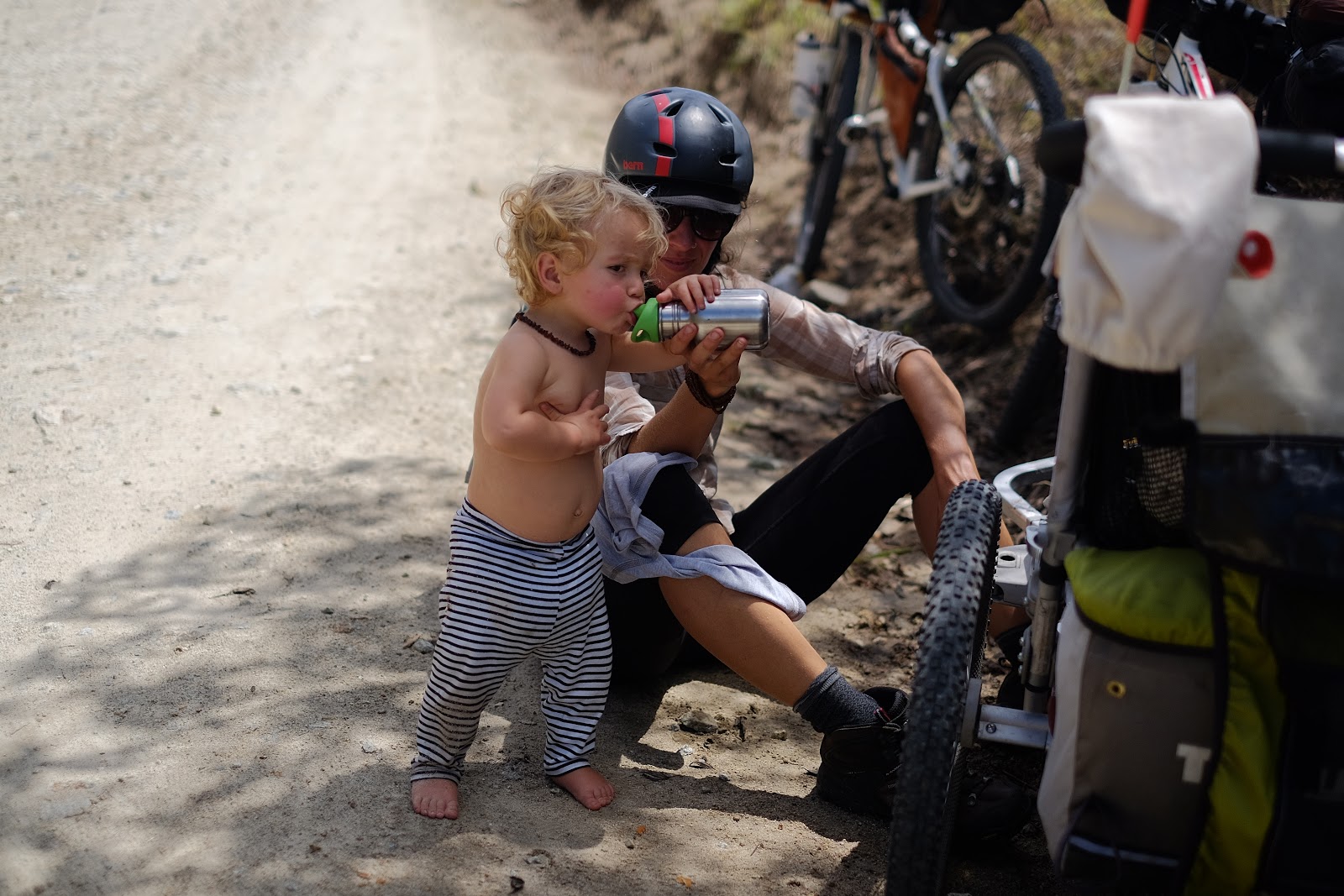Palugo, del quichua --cerro de lagartijas--
Este pedacito de tierra trepado sobre una lengua de lava del volcan Pishanga hace muchos años nos invito como inquilinos permanentes. Aqui crecimos; entre espinos, casantos, obsidianas y --obviamente-- lagartijas.
Como es de esperarse, esta tierra nos a moldeado a sus caprichos y nosotros a su vez hemos moldeado a la tierra fundamentados en un principio de simbiosis. Lo que alguna vez fue solo lomas semi-deserticas dedicadas a la crianza de chivos, hoy es una finca de producción organica donde coexisten varias decenas de especias animales y vegetales.
Como funciona la Finca Palugo:
-- Como cimiento Palugo es una finca-escuela enfocada en permacultura y deportes de aventura. El proyecto lo llamamos Nahual.
-- Nahual recibe grupos y dicta cursos de distintas materias, principalmente relacionadas a la permacultura y a los deportes de aventura. Grupos de universidades, colegios, comunidades y viajeros/voluntarios son parte del flujo normal de la finca.
-- Nahual tiene un sistema de CSA (community supported agriculture) para 40 miembros de nuestro NAHUCO. Ellos reciben productos orgánicos de la finca semanalmente. NAHUCO lleva 12 años distribuyendo sus delicias todos los martes del año.
-- En Palugo se crian sanos y bien cuidados, vacas, alpacas, gallinas, pollos, cuyes, conejos, caballos y chanchos todos con un proposito principal, contribuir a la calidad del suelo. El suelo es la base de la vida.
-- En Palugo construimos con adobe, piedra y madera de la finca. Creemos firmemente en que "Tu casa la construyes y la diseñas TU" al fin y al cabo es tu madriguera.
-- Nuestros baños son composteros. No le tenemos miedo a la --mierda-- sea esta de animal o de humano. Aqui la mierda se utiliza... y bien!
-- 50% de nuestra energia es solar o del viento. Muchas de nuestras estructuras funcionan exclusivamente de energias alternativas.
--Los abonos se producen aqui. Bokashi, biol, fosfitos y microorganismos son preparados todas las semanas, en la medida de lo posible de recursos locales. No se usa ni un solo pesticida químico e incluso evitamos los pesticidas naturales de ser posible.
-- Creemos en el principio de --comunidad-- para el desarrollo como seres humanos. Nada de lo que hacemos aqui en la finca fuera posible si no somos parte activa y consiente de una tribu donde el objetivo principal es el bien común.
-- Intentamos, en la medida de lo posible, consumir lo que producimos aqui, hortalizas y otros vegetales y granos, queso, yogurt, carne y huevos son la base de nuestra dieta.
Como es de esperarse no todo en Palugo es --color de rosas--. Tenemos innumerables problemas, trabajar la tierra es duro, tener animales es sacrificado, vivir en comunidad no siempre es facil, las energias alternativas son complicadas, construir es lento, el 'mal llamado' desarrollo no nos respeta, etc, etc.
Aqui se vive, como en todo lado, con lo bueno y con lo malo, tratando de aportar un grano de arena para que los que vienen despues de nosotros reciban algo mas bonito y mas sano de lo que a nosotros se nos ha dado prestado.
________________________________________
Palugo, from quichua -- the hill of the lizards--
Palugo farm is perched on top of an old lava flow from the old-extinct Pishanga volcano, this land invited us as permanent residents many years ago. We grew-up here; Amongst the casanto trees, the thorny shrubs, obsidians and --of course-- lizards.
As you would expect, the land has shaped who we are and on a symbiotic relationship we have shaped the land as well. What once was a semi dessertic land used only for goats, nowadays hosts a productive organic farm where dozens of animal and plant species co-exist.
How does Palugo work:
-- We receive about 200 visitors each year. Schools, universities, indigenous communities, travelers and apprentices are part of our yearly flow. Ecuadorians and foreigners. The programs we offer vary from one day workshops to fully accredited high school semesters where students live on the farm for 100+ days.
-- We operate probably the first CSA of the country, NAHUCO. With over forthy members, Nahuco has been delivering healthy food every Tuesday of the year for the past 13 years.
-- Besides our crops we have healthy and well kept cows, horses, chickens, rabbits, guinea pigs, pigs, bees and two dogs. All of them free-range with access to healthy food and water and their main purpose is to protect and improve the soil. The soil is the pillar of life on earth.
-- Houses and farm infrastructure are built with natural materials if possible. Adobes, wood and rock from the farm are turned into simple and practical buildings.
-- All our composting toilets are "water free". All our humanure is composted and returned to the soil. We love manure regardless if it is from animals or humans. We use it all!
-- 50% of all our energy comes from "in situ" renewable systems, mainly wind and sun. Some households are fully off the grid.
-- All fertilizers we use are made on the farm, mostly with farm resources. Bokashi, biol, compost, micro-organisms and medicinal teas are made every week for nourishing plants and animals.
-- We believe in community as the main pillar for individual growth and a healthy society. Everything we do here is possible because we work together as a tribe. The final goal is the communal well being.
--We mostly eat what we grow or produce. Vegetables, eggs, cheese, milk, yogurt, meat and some grains are the main ingredients of our daily food.
Finally, as you would expect, life isn't all roses. Living in a community is not easy, working on the land is hard, raising animals is time consuming, building your own stuff is slow, alternative energies require extra work, the government and most of the society don't give a shit about small scale farming, etc, etc...
Here, as everywhere else, we live in between the good, the bad and the ugly. We try hard to keep and improve what has been borrowed to us momentarily so that future generations can enjoy it as well.
-- Students base camp
-- Campo Base
-- Work its an -everyday- opportunity for learning and teaching.
-- El Trabajo es una oportunidad de aprender y enseñar todos los dias.
-- Our own kids and all our visitors are constantly encouraged to connect with the natural world around us.
-- Nuestros niños y todos nuestros visitantes estan constantemente incentivados a conectar con el mundo natural que nos rodea.
-- Barley and barley sprouts for animal and human consumption.
-- Cebada y brotes de cebada para consumo de los animales y de nosotros mismos.
-- Besides cows, alpacas, sheep, pigs, chickens, etc, we also keep 3 to 5 active beehives to pollinate our gardens and provide some honey. Yum!
-- Ademas de muchos animales domesticos que merodean la finca, tambien tenemos entre 3 y 5 panales de abejas que ayudan con la polinizacion de los sembrios y nos regalan un poco de miel. Yum!
-- Free-range healthy animals pasture between fields and native forest.
-- Todos nuestros animales tienen acceso a pasto, sombra y agua limpia.
-- Todos nuestros animales tienen acceso a pasto, sombra y agua limpia.
-- Home-schooling and un-uschooling makes us happy.
-- CSA in motion! 40 families support our 13 years old CSA system.
-- Nuestros productos se entregan a nuestros 40 miembros todos los martes del año.
-- Nuestros productos se entregan a nuestros 40 miembros todos los martes del año.
-- Celebration happens as well, we like to dance, sing and honor life as a precious gift.
-- Como es de esperarse, nos gusta celebrar. Celebrar en honor a este regalo enorme que es la vida.
-- Como es de esperarse, nos gusta celebrar. Celebrar en honor a este regalo enorme que es la vida.
-- The barn is our main classroom, there is activity here every day.
-- El establo es nuestra clase mas utilizada, hay actividad todos los dias.
-- We slaughter animals here and then, we do it with pride when needed, we take the time, effort and spiritual strength to do it with our own hands honouring life and death as natural processes.
-- De vez en cuando se sacrifican animales para nuestro consumo y para la venta. Lo hacemos con orgullo y nos damos el tiempo de honrar la vida y la muerte como procesos naturales.
-- De vez en cuando se sacrifican animales para nuestro consumo y para la venta. Lo hacemos con orgullo y nos damos el tiempo de honrar la vida y la muerte como procesos naturales.
-- Students and groups who visit are a key element to keep the farm moving. Everyone has a chance to experience the magic of growing your own healthy food.
-- Nuestros estudiantes y visitantes son un elemento fundamental para mantener la finca andando. Todos tienen la oportunidad de experimentar el proceso magico de crecer tu propia comida sana.
-- "El Opa" has learned to work with a big troop of assistants. We feel is important for our children to share our working space as well.
-- "El Opa" a aprendido a trabajar con una tremenda tropa de asistentes. Creemos que es importante para lo pequeños compartir el ambiente de trabajo como parte de su desarrollo.
--Los -Allus- como les dicen los pequeños.
-- Teaching about organic fertilizers // Fertilizantes orgánicos.























































